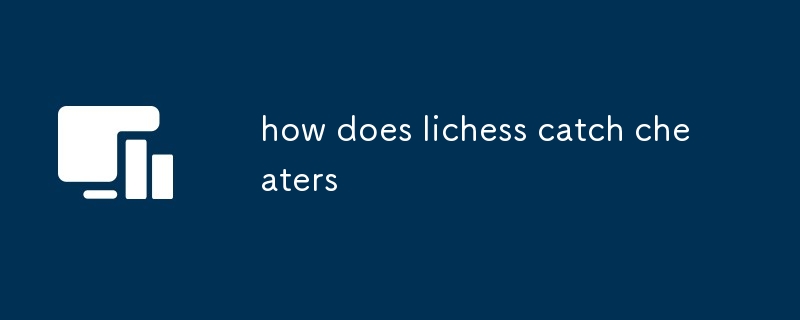how does lichess catch cheaters
Lichess employs a layered approach to anti-cheating measures. It utilizes machine learning algorithms that analyze gameplay patterns and engine evaluations to identify potentially suspicious moves. The system is further bolstered by human moderators

How does Lichess detect cheaters?
Lichess uses a combination of machine learning algorithms and human review to detect cheaters. The machine learning algorithms analyze factors such as move patterns, time taken for moves, and engine evaluations to identify suspicious behavior. If the algorithms flag a game as potentially involving cheating, it is then reviewed by a team of human moderators who make the final decision on whether to ban the player.
What methods does Lichess use to prevent cheating?
In addition to its cheat detection algorithms, Lichess has several measures in place to prevent cheating:
- Timeouts: Players have a limited amount of time to make their moves. This helps to prevent players from using computer assistance to analyze their positions.
- In-game chat: Players can communicate with each other in real-time through in-game chat. This makes it harder for players to collude with each other or receive outside help.
- Report system: Players can report suspected cheaters to Lichess. The Lichess team will investigate all reports and take appropriate action.
Can Lichess effectively identify and ban cheaters?
Lichess has a strong track record of identifying and banning cheaters. The site's cheat detection algorithms are constantly updated and improved, and the team of human moderators is experienced and dedicated to ensuring fair play. As a result, Lichess is one of the most trusted online chess sites in the world.
The above is the detailed content of how does lichess catch cheaters. For more information, please follow other related articles on the PHP Chinese website!

Hot AI Tools

Undresser.AI Undress
AI-powered app for creating realistic nude photos

AI Clothes Remover
Online AI tool for removing clothes from photos.

Undress AI Tool
Undress images for free

Clothoff.io
AI clothes remover

Video Face Swap
Swap faces in any video effortlessly with our completely free AI face swap tool!

Hot Article

Hot Tools

Notepad++7.3.1
Easy-to-use and free code editor

SublimeText3 Chinese version
Chinese version, very easy to use

Zend Studio 13.0.1
Powerful PHP integrated development environment

Dreamweaver CS6
Visual web development tools

SublimeText3 Mac version
God-level code editing software (SublimeText3)

Hot Topics
 1664
1664
 14
14
 1422
1422
 52
52
 1316
1316
 25
25
 1268
1268
 29
29
 1240
1240
 24
24
 How much does Microsoft PowerToys cost?
Apr 09, 2025 am 12:03 AM
How much does Microsoft PowerToys cost?
Apr 09, 2025 am 12:03 AM
Microsoft PowerToys is free. This collection of tools developed by Microsoft is designed to enhance Windows system functions and improve user productivity. By installing and using features such as FancyZones, users can customize window layouts and optimize workflows.




